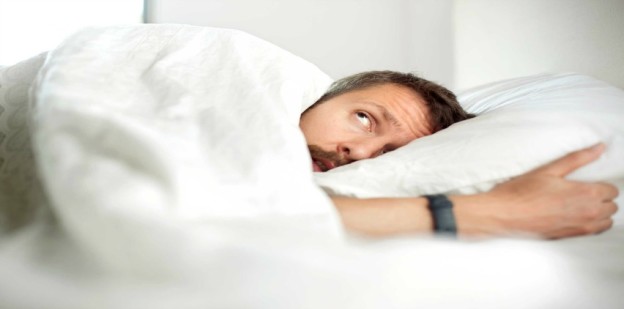

June 9, 2016 | Categories: Sleep
Can’t sleep? It could be what you did (or didn’t eat) that day and when. Get a sleep doctor’s and nutritionist’s advice on how to eat to sleep better.
Your dinner is too early.
If your supper is around 5 p.m. and you don’t hit the hay until 11 p.m. or later, hunger may interfere with your sleep. You might need a small snack a couple hours after dinner to send yourself to dreamland. “The perfect bedtime snack would be something like cheese and crackers,” says Michael Breus, PhD, a California-based board-certified sleep specialist, author of The Sleep Doctor’s Diet Plan: Lose Weight Through Better Sleep. Choose a hard cheese instead of a soft cheese, advises Dr. Breus; hard cheeses are higher in tyrosine, a compound which helps with sleep. Your bedtime snack would ideally be 65 percent carbs and 35 percent protein and about 250 calories, suggests Dr. Breus. A small bowl of cereal with low-fat milk is another great evening snack idea. But don’t eat too late night or you could get heartburn or other health problems.
Your dinner is spicy.
You might want to avoid spicy foods a few hours before hitting the hay as they can cause heartburn or indigestion. “When you go from standing to lying down, gravity isn’t your friend and [those spices] can go into your esophagus and then you get reflux, which can be disruptive to your sleep as well,” says Dr. Breus. “Also, there is some data to show that eating spicy food may cause a higher proclivity for nightmares,” says Dr. Breus. Here are surprising acid reflux symptoms you might overlook.
You took an afternoon coffee break.
You might think you need the afternoon java fix to improve focus the last few hours of the day, but it takes six hours for your body to process and eliminate just half of the caffeine consumed. This stimulant can also cause nervousness and contribute to insomnia, according to the National Sleep Foundation. Three eight-ounce cups of coffee (about 250 milligrams of caffeine) daily is considered a moderate amount of caffeine. Many sleep experts suggest eliminating caffeine in the afternoon if you’re having falling asleep at night. Here are other surprising tips to sleep better from medical doctors.
Your diet’s too strict.
While new research in JAMA Internal Medicine claims that people who “fasted” for two years (by slashing 25 percent of their daily calories) lost about 10 percent of their body weight and reported sleeping better, that strict style of eating isn’t for everyone—and not eating enough could lead to trouble sleeping at first. “You don’t want to go to bed hungry, that will absolutely prevent you from being able to fall asleep,” says Dr. Breus. Hunger pains and anxiety that can come with them can keep you awake. “I have patients who either have eating disorders or who are super dieters and they can lie in bed and start to think, ‘What did I eat today? What did I not eat today?’ It raises that level of anxiety and makes it very difficult to fall asleep.”
You drank too much alcohol.
“Alcohol is the number-one sleep aid in the world,” says Dr. Breus, “but it’s not a good one.” While alcohol makes you fall asleep, it keeps you out of the deeper stages of sleep, so half of the reason you wake up with a hangover is because you didn’t get that deep sleep and the other half is dehydration, Dr. Breus says. We aren’t saying you can’t have a drink or two with dinner, but for every alcoholic beverage, have one glass of water. “You would want lights out to be probably three hours after your last alcoholic beverage to give your body the chance to digest it, so it’s not having that affect on your sleep,” he says.
Read the full article on ReadersDigest.com.
Leave a Reply